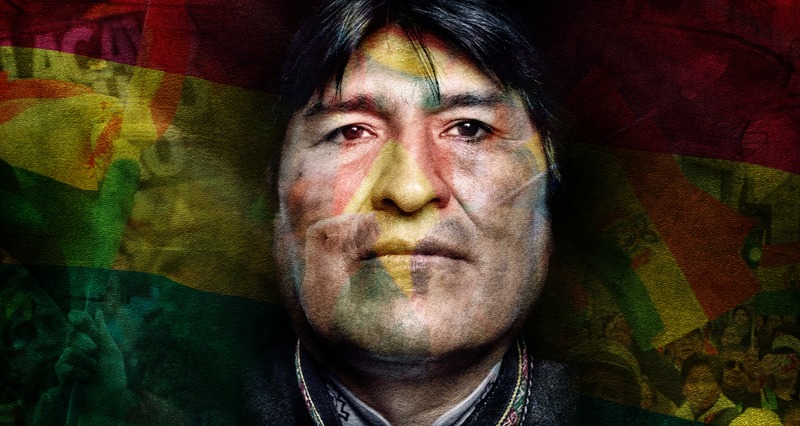By Ana Laura Dagorret*
The Movement Towards Socialism in Bolivia (MAS) is going through its final crisis. The rupture has left two well defined sides: On one side, the current president Luis Arce leads the “renovation” of the party. The other side’s leader is the former president and founder of MAS, Evo Morales, who is in an irreconcilable crusade with Arce himself.
What was already palpable from the crossed declarations of both leaders, in the last days was consolidated with a decision of Arce. The sector represented by Evo approved in Congress a motion of censure against the Minister of Government, Eduardo Del Castillo, a key figure for President Arce. For this, the congressional sector that responds to Evo voted together with the opposition blocks of Comunidad Ciudadana, of Carlos Mesa and Creemos, of Luis Fernando Camacho, both protagonists in the coup d’état against Evo in 2019.
After the legislative procedure, President Arce reappointed Del Castillo to the position, which was considered a clear challenge to Morales. In the same act of appointment, Arce mentioned that “we have listened to the Bolivian people, we have said it and it is not only a mention, not only the organizations that are present here, but through our Vice-Ministry of Coordination with Social Movements, we have been in contact with many organizations, which have overwhelmingly and forcefully supported Eduardo Del Castillo”.
Minister Del Castillo also took the floor and stressed that “today, like it or not, the leader of the revolution is President Luis Arce and he is complying”.
After the new appointment, Evo expressed his criticism via Twitter: “Let the worthy Bolivian people judge. I hold the censured and unconstitutionally and illegitimately ratified minister responsible for any attempt against my life or physical integrity”.
The crisis that MAS is going through is confusing if one takes into account the economic present of the Plurinational Republic of Bolivia. In 2022, it had a growth of around 4%, a percentage that could have been higher, but was “slowed down” by the 36-day strike in Santa Cruz (the country’s economic engine) and by climatic phenomena that affected production.
Inflation rates also show a stable outlook: 3.28%, as established in the Fiscal-Financial Program 2023, as a result of the fuel subsidy policy implemented since 1997. Faced with a situation of rising prices that has spread internationally, one of the campaigns promoted by the Bolivian government was the comparison with the economic reality of other countries, where inflation was generalized in the face of the war in Eastern Europe.
Some analysts point out that the crisis within the party is caused by the personal aspirations and the apparent continuity of the power project of former president Evo Morales, as well as those sectors that support him. Investigations regarding the coup suffered by Morales in 2019 confirm that there was no electoral fraud, which would give legitimacy to Evo’s victory for another five-year term. As the latter was not consolidated due to the coup d’état articulated by the Organization of American States (OAS) with the Bolivian right wing, the former president insists on regaining prominence for 2025.
For the former Bolivian vice-president Álvaro García Linera, the incentive to internal division constitutes a “political suicide”. Linera even said in an interview that “there are differences that are getting bigger and bigger, because there are disqualified people who speak in the name of the leaders and this is bleeding our process”.
Far from contemplating the warnings and supporting unity, Evo Morales went so far as to make public his enmity with Linera, whom he described as a traitor, saying that the latter disqualified him because of his indigenous condition. In his statements, Morales did not mention the fact that Linera had stressed the need for the next Bolivian president to be of indigenous origin.
Some analysts warn that the MAS crisis is being encouraged from outside. As it happened in Ecuador in the last elections, it is speculated that there may be agents operating to foster the division in the party, mainly within the indigenist movement, in order to build a strong opposition to Arce.
If at some point someone speculated with the possibility of an alliance of this sector of the MAS with right wing parties to consolidate the defeat of the current president, the analysis was not wrong. In this opportunity in which the Minister of Government was censured, the part of the MAS aligned with Evo allied with the right wing who was directly envolved in the coup of 2019 to try to impose a defeat to Arce’s government.
If this situation deepens, something increasingly difficult to rule out due to Evo’s insistence to fuel the rupture, it is more than likely that the division will benefit the current opposition, especially U.S. imperialism, whose interest in the country is due to the wealth of its natural resources, mainly lithium. If this happens, the progress achieved during the 20 years of MAS in Bolivia will be put at risk.
* Ana Laura Dagorret international analyst, co-author of the Brief Geopolitics Handbook and part of the PIA Global team.

















Leave a Reply